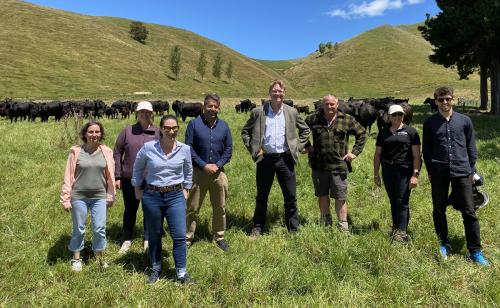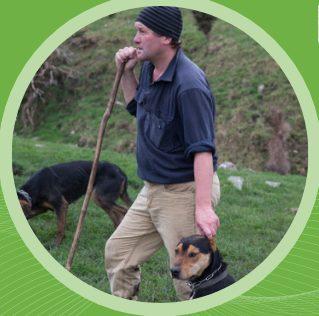Search results
Displaying 671 - 680 results of 1351
- News… of voting show there are concerns among some farmers about B+LNZ’s advocacy work, but they also reflect farmers’ frustration with the scale, impact … Government reforms. “There’s also a group of farmers who feel they haven’t been listened to …

- Factsheet… 0800 beeflamb 0800 233 352 wwwbeeflambnzcom farmers farmers fact sheet 9 3 revised may 2019 key … 0800 beeflamb 0800 233 352 wwwbeeflambnzcom farmers farmers biology porina common name …
- News… and his staff on a New Zealand sheep and beef farm, offering them a firsthand look at how farmers embed sustainability practices in … B+LNZ showcases world-class farming to EU Ambassador …

- News… Futures programme continues to benefit farmers. A 16-year study on Bog Roy Station … significantly boosted animal performance and farm income. …

- Podcast… and why he is reducing drench inputs in his farm system. Dave farms sheep and beef on Montrose Estate, North …

- Learning module… rates impact favorably on many aspects of farm profitability. …
- … low-slope map for stock exclusion, freshwater farm plans, changes to the intensive winter … consultation. FACTSHEET: B+LNZ & Federated Farmers’ assessment of the new essential … next steps, and how we’ll be helping farmers over the coming weeks and months with …
- News… fencing, destroyed bridges, blocked access to farms in desperate need of help and damaged farm infrastructure that will take farmers years to rebuild.” McIvor says the …

- Video… at Massey. She was raised on a dairy farm in Taranaki but now lives with her family on a sheep and beef farm in Martinborough. This B+LNZ Webinar was … B+LNZ Manawatu Farming for Profit Webinar: ‘Primary Sector …
- Other PDF… 0800 beeflamb 0800 233 352 wwwbeeflambnzcom farmers farmers beef lamb new zealand works promote … productive sustainable profitable livestock farming lnz commitment welfare sheep beef …
